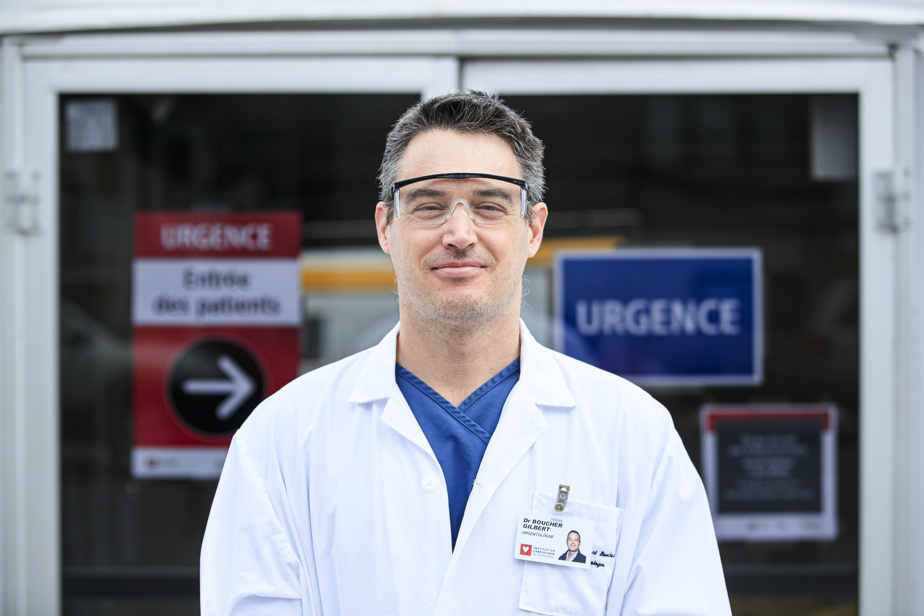Posted at 5:00 a.m.
“It will not be the open bar, we are still far from that, people have to understand that we still have a month and a half easily where we will have to be very vigilant. But by being careful, I think we can start a return to normal life, ”launches the Dre Marie-Pascale Pomey, public policy specialist at the School of Public Health of the University of Montreal (ESPUM).
Monday, The Press reported that Quebec was preparing to give the green light to the resumption of sports activities for young people on January 31, the day when it also plans to allow the reopening of restaurant dining rooms and limited gatherings in homes.
The Dre Pomey observes, like most experts in the world, that a reduction in transmission is observed, but above all, that the world is “slowly moving from a conception of a pandemic towards an endemic”, which is defined by the presence “usual” of a virus in a population.
We also clearly see a decrease in transmission everywhere, especially in Europe, so this gradual return to normal life, as long as it is vigilant and cautious, seems logical to me.
The Dre Marie-Pascale Pomey
An idea of the sequence
In this context, it seems “safe” to reopen several parts of society, according to Mme Pomey, citing in particular cinemas, performance halls – “which have shown their ability to respect the rules very well” -, but also restaurants, with “strict conditions” and “good ventilation”.
“The opening of restaurants, in my opinion, could have already been announced, given that the peak has been reached. With a lower capacity, around 50%, by asking that people be vaccinated and that they understand that a table equals a residence, I do not see where the problem is, ”slips virologist Benoit Barbeau, professor in the department. of Biological Sciences from the University of Quebec in Montreal (UQAM).
The same precautionary principle should apply for the resumption of sports and extracurricular activities, judges the expert.

PHOTO FRANÇOIS ROY, LA PRESSE ARCHIVES
Benoit Barbeau, professor in the department of biological sciences at UQAM
Of course, the risk of transmission is not negligible, but for the well-being of young people in particular, this should be one of the priority measures. At some point, the population must be able to breathe a little. Sport, I think the government knows that will certainly reduce the discontent.
Benoit Barbeau, professor in the department of biological sciences at UQAM
Both Mme Pomey that Mr. Barbeau also agree on the fact that it seems legitimate to propose more “openness” in terms of private gatherings, in order to allow Quebecers to meet in “at least more than one residence in the same place”, ideally between vaccinated people. “For the moment, I would unfortunately leave aside gyms and bars, where the risks are still a little higher,” says Benoit Barbeau, however.
“Go Somewhere”
For the president of the Association of specialists in emergency medicine of Quebec (ASMUQ), the Dr Gilbert Boucher, the government’s challenge will be to “find a fair balance” in a context where “there is still a lot of community transmission” and that “the wave is unfortunately not over”.
“Hospitalizations are going down and we are very happy, but it is certain that the pressure on the system has not disappeared. At the same time, we must not wait until our hospitals are empty, otherwise we will spend six months confined. We have to go back somewhere, ”adds the Dr Boucher.
One thing remains inevitable: each deconfinement “is associated with a little more transmission”, he continues.

PHOTO EDOUARD PLANTE-FRÉCHETTE, LA PRESSE ARCHIVES
The Dr Gilbert Boucher, President of the Association of Emergency Medicine Specialists of Quebec
We know for example that with the reopening of schools, there is a transmission linked to that. But we can’t stay stuck forever. You have to find that right balance.
The Dr Gilbert Boucher, President of the Association of Emergency Medicine Specialists of Quebec
However, this balance will not be “really not easy to identify”, believes Alain Lamarre, professor-researcher specializing in immunology and virology at the National Institute for Scientific Research (INRS). “The main thing will be that we give ourselves a game of at least two weeks between each relief, in order to really assess the impact and not have to sink into the concrete of promises. We must also immediately put all that in parentheses, saying that if we don’t see a marked increase, we can lighten something else, ”he says. Like many, the expert is concerned about the erosion of adherence to health measures. “The government has to deal with this. If they keep the tone too hard as is the case at the moment, it will cause too many to drop out, ”he concludes.

